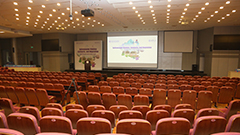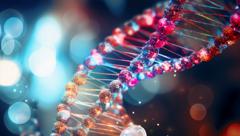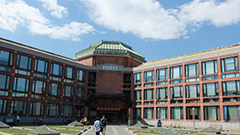- Home
-
About us
About us
Founded in 2015, the Advanced Innovation Center for Structural Biology of Tsinghua University is now headed by the distinguished structural biologist, Prof. Yigong Shi.
Learn More
-
Faculty
Faculty
The Center is home to China’s top structural biology research teams, featuring CAS academicians, and winners of the National Science Fund for Distinguished Young Scholars. Meanwhile, it has trained many postdoctoral fellows and doctoral students as a cradle of outstanding young researchers for domestic and foreign universities and institutes. The Center has an international academic committee consisting of more than ten foreign experts in structural biology, including several Nobel laureates.
Learn MorePrincipal Investigator CO-PI Directors of Core Facilities Advanced Innovation Young Scientist Advanced Innovation Fellow Senior Technician International Academic Advisors
-
Research
Research
With a focus on structural biology, the Center is developing multidisciplinary strengths in integrating the best practices in method development, fundamental research and translation of research advances, in a bid to deliver some of the original findings with significant influence in the history of science and bolster the biotechnological and biopharmaceutical activities in Beijing.
Learn More
-
News&Events
News&Events
To receive information on latest developments, major events and research findings of the Center
Learn More
-
Meeting
Meeting
To find out more about our conferences and events, detailed information and entry forms
Learn MoreInternational Conferences Advanced Innovation Lecture Series for Structural Biology Advanced Innovation Workshops for Structural Biology Others
-
Download
Download
To learn about what’s going on at the Center from an informative, interesting and insightful publicity video
Learn More
-
Contact Us
Contact Us
To view information on job opportunities, contacts and our administrative team of the Center
Learn More


